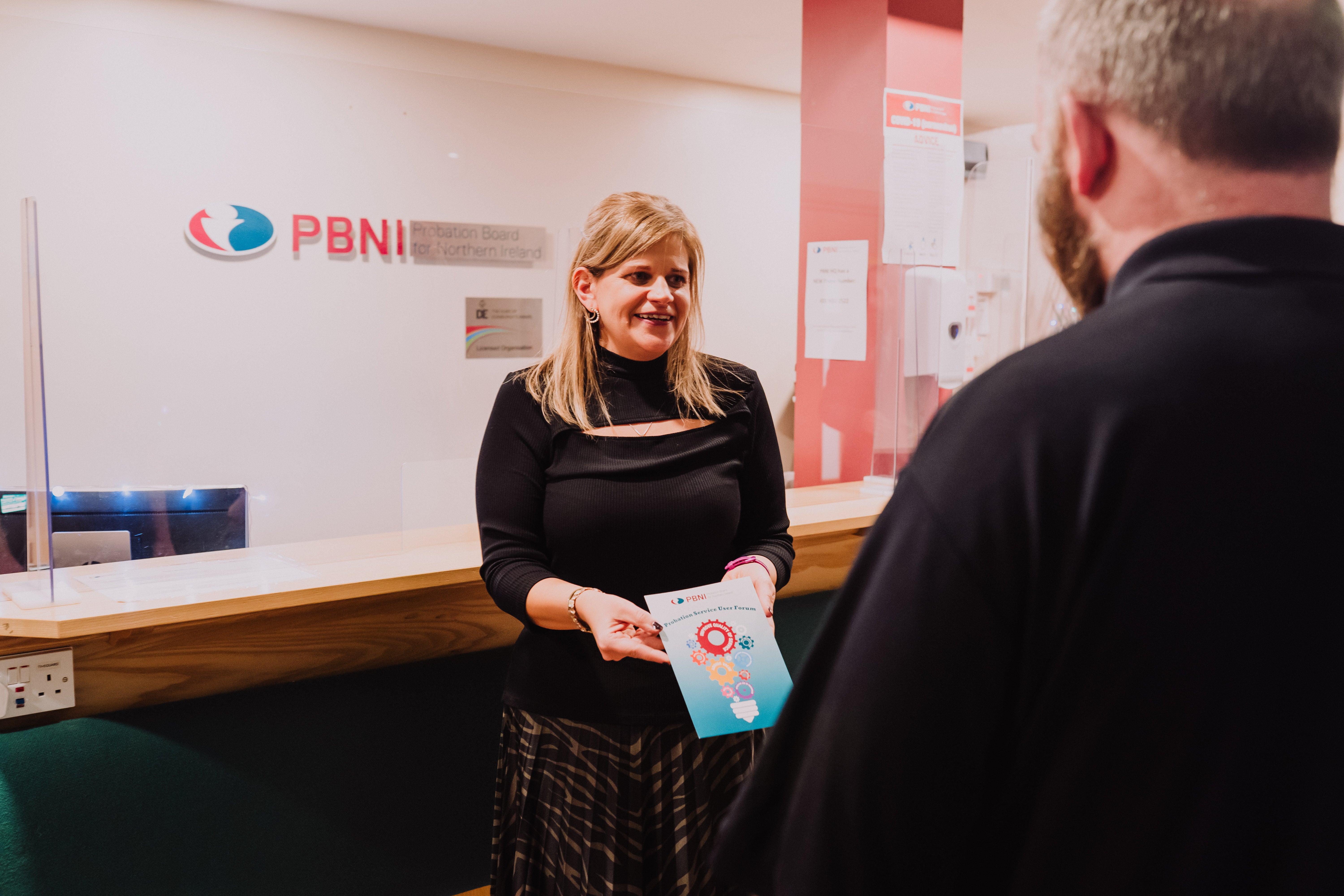Offenders share experiences in new rehabilitation initiative
A number of groups across Northern Ireland allow people who are subject to court orders to meet with probation staff.

Your support helps us to tell the story
From reproductive rights to climate change to Big Tech, The Independent is on the ground when the story is developing. Whether it's investigating the financials of Elon Musk's pro-Trump PAC or producing our latest documentary, 'The A Word', which shines a light on the American women fighting for reproductive rights, we know how important it is to parse out the facts from the messaging.
At such a critical moment in US history, we need reporters on the ground. Your donation allows us to keep sending journalists to speak to both sides of the story.
The Independent is trusted by Americans across the entire political spectrum. And unlike many other quality news outlets, we choose not to lock Americans out of our reporting and analysis with paywalls. We believe quality journalism should be available to everyone, paid for by those who can afford it.
Your support makes all the difference.Offenders and victims of crime are taking part in a new initiative launched by the Probation Board for Northern Ireland (PBNI) aimed at rehabilitating people and making communities safer.
PBNI has set up a number of groups across Northern Ireland which allow people who are subject to court orders to meet with probation staff to give feedback on what has worked in enabling them to move away from crime.
PBNI director of operations Gillian Montgomery said: “We believe people have the capacity to change.
“In order for that to happen, those who have offended must take responsibility for their actions.
“They must also play an active part in the rehabilitation process.
“International and local research shows that when service users feel they are involved in how services are designed and delivered, they are more likely to be successfully rehabilitated and stop committing crimes.”
We want to use the knowledge and experience of those who have been through the criminal justice system
She added: “We have therefore set up a number of service user groups.
“These groups enable service users to meet with probation staff and give feedback about what has worked and, importantly, what hasn’t worked in assisting them to move away from crime.
“We want to use the knowledge and experience of those who have been through the criminal justice system to help ensure our services are the best they can be.”
As well as service user groups for those who are subject to community orders or post-custody licences, there are also groups for victims and survivors.
Ms Montgomery said: “We want to understand the experience of all those who use probation services and use this feedback to improve our service.
“We also believe there is a role for service users in educating others about the risk of becoming involved or further involved in criminality.
“Our service users have set up a newsletter with information and resources on addiction and mental health that can help other people.
“The newsletter called ‘Connect’ also enables people to share stories about how they have changed their lives in the hope it will inspire others.”
One service user on the group said: “I am glad to be able to help other service users to deal with their problems and I feel that I can use my previous experiences to alleviate some of their fears and anxieties about being on probation”.
Ms Montgomery said: “As a justice organisation we know that we will only be successful when we work in partnership and that includes involving service users and using their lived experience to improve our services and make communities safer.”